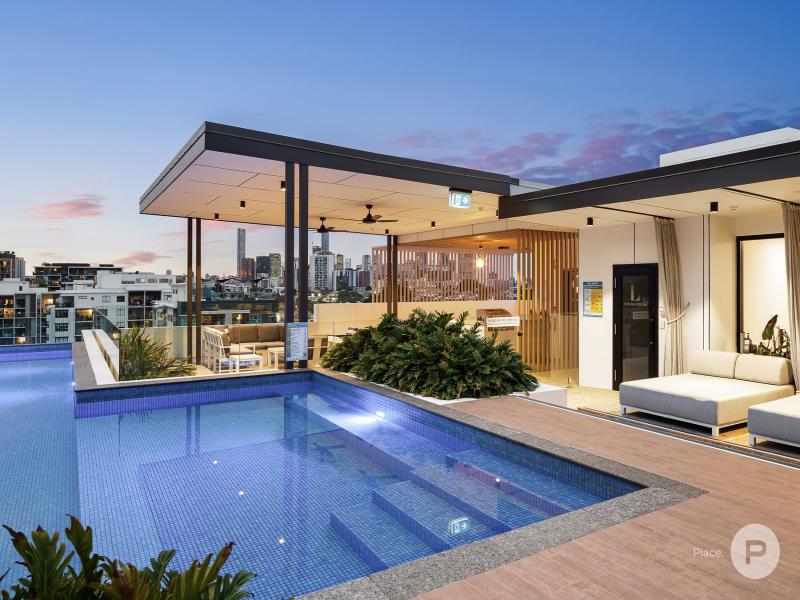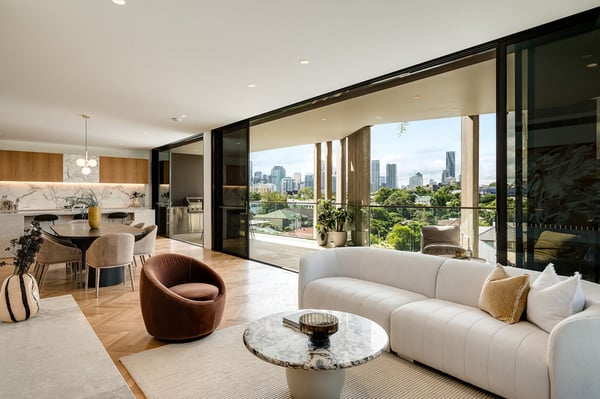There are many advantages to owning or investing in a residence within a complex, including having a body corporate that can help oversee its care and preservation. Unsure what this entails? Read on to get clued-up on the essentials of a body corporate…
What is a body corporate?
Simply put, a body corporate is a group that has been chosen by residents to manage a complex. Perhaps one of the most crucial tasks involved is the maintenance of any shared facilities or ‘common property’, such as gardening and tidying of any shared pathways. Rather than putting the responsibility on a particular resident to ensure the upkeep of these spaces, a body corporate handles these jobs and ensures the complex is being properly cared for.
In addition to this, a body corporate will also schedule fire safety checks and inspections for amenities like elevators or swimming pools. They are the go-to person for anything relating to the complex, including keeping any financial records and employing cleaners or caretakers. As a title/property owner, you are entitled to vote on any decisions reached by the body corporate and to make suggestions as to how the complex is maintained.

What is ‘common property’?
In a residential complex, ‘common property’ refers to any shared spaces that are not private – think stairwells, driveways or pathways. This might also apply to any lifestyle-focused facilities, with many complexes offering the use of swimming pools, gyms and saunas, for example. A body corporate will take care of these amenities to guarantee its safety and functionality.
If a property owner is unsure about what might be considered common property, it’s advised to check what survey plan the complex falls under. In Queensland, body corporates are registered under either a building format plan or a standard format plan. The former relates to horizontal-format developments like gated communities or a complex of townhomes, while the other covers vertical-format developments such as high-rise apartment complexes. The defined common property can differ between these two plans; owners are always encouraged to check with their body corporate if seeking clarification and guidance.
I have to pay a body corporate levy – what does this include?
As services, maintenance and insurance incur costs, owners are expected to provide funds to cover the complex’s upkeep. A body corporate will also see to general administration and paperwork, which owners financially cover with their levy or ‘annual fee’. This is all typically organised in an Annual General Meeting at the start of the year, where an annual budget is agreed on and each owner is allocated their share of the fees.
In your standard body corporate agreement, you might see the terms ‘lot entitlement’ and ‘lot liability’ mentioned. The latter relates to the share of expenses that each owner must pay, whereas a ‘lot entitlement’ outlines an owner’s share of the common property and determines their voting rights. In some cases, an owner might be entitled to more than one vote and can influence how body corporate decisions are made.

What is a special levy?
While it can be stressful to think about, extreme weather events and general wear-and-tear are often a part of life… especially in Queensland! On these occasions, a special levy covers any needed repairs that might be quoted as more than what was budgeted for at the Annual General Meeting. Certain repairs might also not be covered by insurance, meaning owners may have to contribute extra funds upfront.
If a special levy is required, it will go through an approval process with the body corporate and a bill will be sent to each lot owner in relation to their share.
What are body corporate by-laws?
When living in a complex made up of numerous residences, it’s important that everyone can enjoy any shared spaces respectfully and live harmoniously. Body corporate by-laws aim to keep everyone happy by outlining topics such as the use of visitor parking and the opening times of any shared facilities.
Documented in a complex’s community management statement (CMS) and available on request to your body corporate, these guidelines might also relate to the complex’s external appearance or the renovation of any lots. For example, owners might agree to keep each residence’s facade in a Queenslander or Hamptons-inspired style. If an owner went against this and reimagined their property to look strikingly modern, this could affect the overall appearance of the complex and its potential value. When in doubt, be sure to check with your body corporate when making any major updates to avoid any potential hassles later.
For more insight and to keep up-to-date with all things Brisbane real estate, subscribe to the newsletter below.
